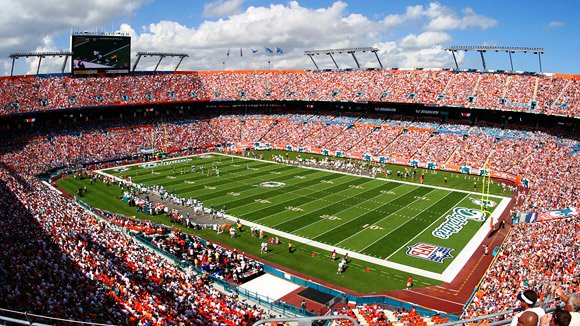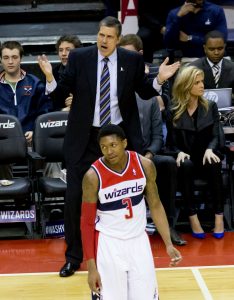Halftime Sports Editor Matt Jasko examines the intersection between finance, economics, and athletics in his segment, “The Cap.”
Earlier this year Troy Kirby, president of the National Association of Athletic Tickets and Sales, published an article on sportstao.com posing a unique: why don’t teams hire ticket brokers?
In the terms Kirby puts it, the argument has gravitas. He argues: “If a person can buy a product at a dynamic “demand price” on the primary and yet still turn it around, selling it for 3-times its value, then that person is a genius.”
Furthermore, he goes on to point out: “Ticket brokers don’t have an army of inside sales staffs to call each customer and develop a relationship. The majority of the sales are transacted on a digital scale, and with a cunning precision. And sports franchises as well as their executives are continually beat out at getting this data and push digital sales, let alone understand how to utilize it.”
With all of this in mind, he postulates that it would make sense for teams to hire ticket brokers to do their online selling and take advantage of their knowledge.
Teams previously had not followed Kirby’s argument because of a few compounding factors, which we will discuss; however, recent developments including Sharon Terlep’s piece in yesterday’s Wall Street Journal, “Why ticket brokers hate the Miami Dolphins,” demonstrate that teams have in fact begun to find ways around a few of these obstacles to cash in on the revenue stream Kirby pointed out.
The first issue teams have been able to overcome on this front is the human resource issue. Kirby argues for teams to engage in direct hiring of the mastermind individuals who run the most successful brokerage firms.
However, this is made extremely difficult by fact that the highly successful brokers are likely making plenty of money and are probably happy with their current position. It makes no sense for them to make less, move their families, and get a job of unknown security with a pro franchise under these circumstances. It’s not broken, so they’re not going to try to fix it.
Sure, teams could try to outbid and poach on this talent, but that could sour existing relations. Believe it or not, teams often do not move all their tickets to begin with. The previously referenced WSJ article indicates the Miami Dolphins left tickets on the table at their home opener this year, despite recently completing renovations on their stadium that cut maximum attendance by roughly 9,000 persons.
In short, there is legitimacy to teams unloading tickets before the season to cut risk, and there are not all that many brokers who can throw around enough capital to make it worthwhile. The risk of agitating brokers by trying to poach top talent is therefore likely unacceptable.
Furthermore, just poaching the talent as Kirby proposes doesn’t get to the meat of what teams really want— intellectual property—the crazy-good math algorithms that have figured out how to balance supply, demand, and time to produce obscene returns. Getting the human power that has the potential to write one is one thing; getting the actual formula is quite another, much more expensive proposition.
Most teams have tremendous overheads and rigid pay schedules, making them relatively illiquid and not well-suited to put together this kind of acquisition. So, the object of the game then becomes if you can’t get the mastermind to work for you, you get the mastermind to work with you. Why not sell large quantities to brokers under the condition you get a kickback on profits?
It sounds like a good idea, but an issue with this cuts to the core of why teams sell stocks of tickets to brokers in the first place: they want to hedge risk. By unloading a quantity of tickets for a discounted price to a broker at the beginning of the year the team guarantees an up-front sum of money, regardless of any negative on-field turns for the worse throughout the season. If the team was to hold all tickets and got ravaged by injury, they may be forced to sell at an extraordinarily cheap price. While they miss the upside if they hedge, doing so correctly can also prevent disaster if they do not.
However, this only works with a relatively small sample size. Once the broker buys the tickets, he owns them and can charge whatever he wants. A few hundred tickets a game won’t mean much, and this theorem stays intact. However, if a team sells a larger quantity to the brokers and the team takes a turn for the worse, the team must deal with the elements of competition they sought to protect themselves from in the first place i.e. the brokers have already bought bulk tickets upfront at a discount, so they can undercut and still turn a profit while the team has a much thinner margin. The failure on the field will lead to a lower demand in tickets, and the broker’s pricing power will mean all of his tickets get sold first. Hence, if the game does not sell out (such as the Miami home opener) it will likely be the team, not the broker, who is stuck with now-useless cardboard rectangles.
Furthermore, there are multiple players in the brokerage market. Reaching deals with all these different players assuring that they will not undercut you is next to impossible.
This is where Terlep’s article from yesterday’s Wall Street Journal comes in. In it she demonstrates: “In bid to control the resale market, [Miami Dolphins’] team owner Stephen Ross is investing in one brokerage—while cutting off others.” She goes on to further explain that the one broker who the Dolphins agreed to sell to this year, Prime Sport, is partially owned by Ross’s RSE Ventures (in short, the Miami owner owns a venture firm that has a minority stake (albeit the position is thought to be <2%) in the only reseller the Dolphins agree to do business with.) Moreover, Terlep writes “An NFL spokesman said the league office was aware of the investment and had no issues with it.”
In effect, Miami owner Stephen Ross is doing what Kirby argued for months ago—taking greater advantage of the resale market. By only doing business with the firm he has an ownership stake in, Ross completely sidestepped all of the previously-noted issues. Moreover, his ownership position in each hedges his two positions against each other, making for a more consistent and predictable revenue stream.
Terlep indicated other owners, such as Dan Gilbert of the Cleveland Cavaliers, have also made sizable investments in the resale industry. This is a trend that will likely continue because of how symbiotic the relationship can be, and, I would propose, should be much expanded.
In an ideal world, I would in fact propose that teams should sell all their tickets to one or two major brokers in which they either have invested stakes or pre-determined kickback agreements. This eliminates all on-field risks, leaving teams open only to vulnerability in fluctuations of whatever currency the deal is inked in (US dollar) and natural disasters, neither of which they can do much about anyway.
With the tickets in the hands of the brokers, teams can now piggyback off their success. An up-front deal could ensure greater baseline revenue than ever before, and economy of size would give the first team to do this a huge advantage (most teams like Miami refuse to broker great numbers of tickets because they lose pricing power; however, if you sell all of them, pricing power becomes irrelevant). Hence, business on this size would expand a ticket broker’s business significantly, enabling the team to leverage a large percent kickback (from which they can no longer get hurt because they need not worry about moving any more tickets).
Moreover, such an extensive business relationship between broker and team would warrant extensive R&D in maximizing sales of that particular team’s tickets. As good as the algorithms are across the general spectrum of ticket, they would become even more refined and precise when resources were allocated to highlight sales of the particular ticket.
On the downside, this would be bad news for fans. If the brokers could really get their hands on that many tickets, their computer generations would surely lead to significantly higher ticket prices. Perhaps we can be optimistic that a large portion of the profits will be reinvested into the team, creating a better overall experience. But regardless of that fact, pending no dramatic regulations imposed by the leagues, we should expect to be buying tickets exclusively off broker websites in the near future.






